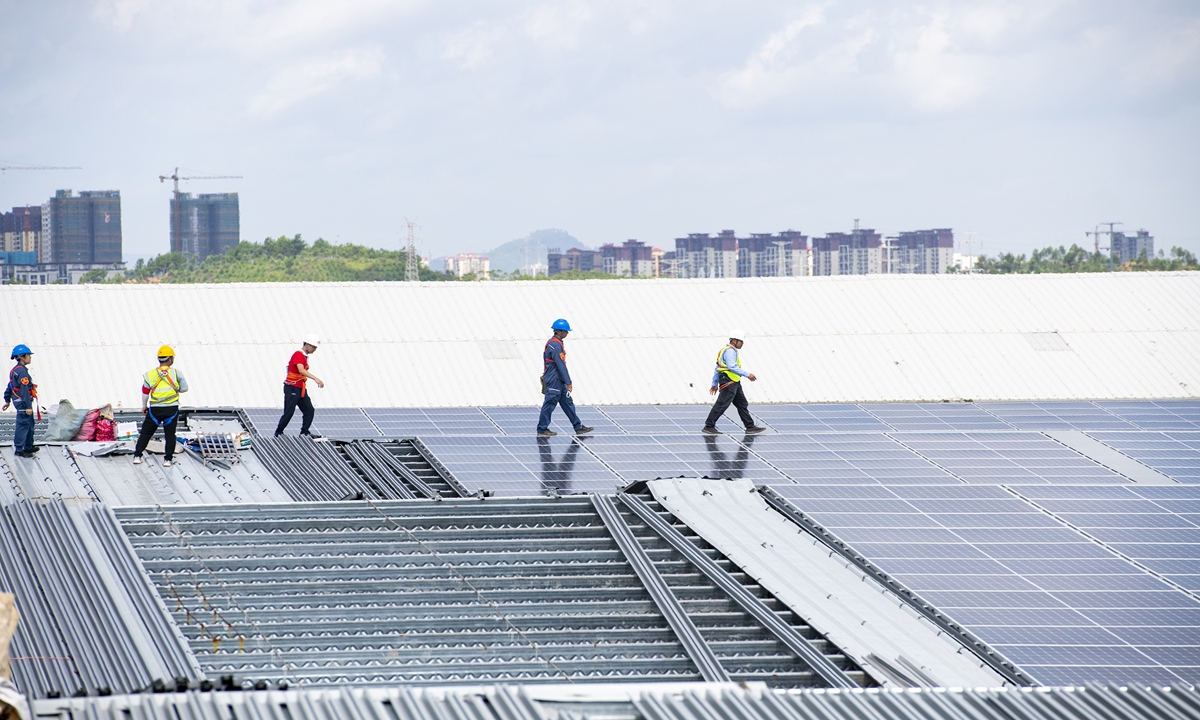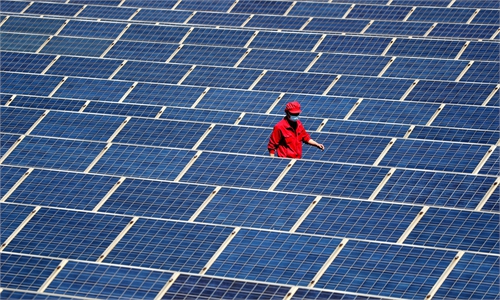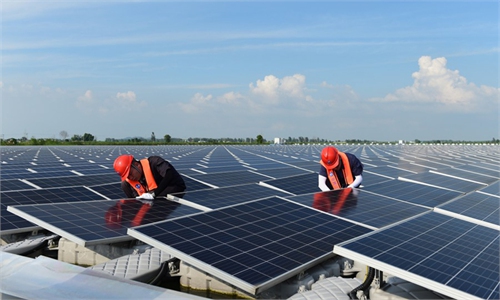
Workers install solar power generation modules on a factory's roof in Teng County, South China's Guangxi Zhuang Autonomous Region, on June 23, 2022. The project is expected to avoid the use of 7,014 tons of standard coal annually, cutting carbon dioxide by 1,754 tons. Provinces across China are encouraging rooftop solar projects to help achieve the country's "dual carbon" goals. Photo: VCG
China's photovoltaic (PV) industry continues to see bright prospects with surging demand for their products and soaring prices, even as the EU is reportedly mulling a ban on certain products made in China's Xinjiang region following the US' suit, industry participants and analysts said on Tuesday.
The EU's plan may further push up raw material prices in the PV sector if it bans silicon products made in Xinjiang, the world's most important production base for polysilicon, experts noted. The EU is shooting itself in the foot with such a decision, as it may have to purchase China's PV devices at higher prices to meet exploding demand, the experts pointed out.
According to a report released by Sinolink Securities on Tuesday, prices of PV cells and silicon wafers rose last week, and the output and installed capacity of the sector in the fourth quarter is certain to increase, with rising prices in the main industry chain during the year.
In the first quarter of 2023, the sector is likely to enjoy continued high-speed growth, the report said.
"Higher prices on the PV industrial chain are mainly attributed to the shortage of silicon supply, which is caused by the mismatch between silicon capacity and exploding demand," an industry expert told the Global Times on Tuesday, adding that external factors, including the COVID-19 epidemic and production cuts, have also pushed material prices up.
As the PV sector accelerates installations and grid connections in the second half of the year, prices of some auxiliary materials like adhesive film are expected to increase along with rising orders, the experts noted.
"The US' 'evil bill' that targets Xinjiang also led to a shortage of silicon, as it bans silicon products made in Xinjiang, the world's most important production base of silicon," Lin Boqiang, director of the China Center for Energy Economics Research at Xiamen University, told the Global Times on Tuesday.
Lin noted that if the EU blindly follows the US, global silicon prices may further increase due to supply shortages, which means that the EU will have to purchase Chinese PV devices at higher prices to meet local booming demand amid its energy crisis.
The failure of the Nord Stream 1 pipeline to resume gas supply has pushed up European natural gas prices again, with a severe impact on industries and households, as well as increasing demand in the PV sector.
One industry participant said that his company increased exports of PV devices to the European market in the second quarter, but there aren't enough technicians to complete the installations.
According to its first-half financial statements sent to the Global Times, solar technology company LONGi Green Energy Technology Co adjusted its business strategy and shifted its sales focus to other important markets such as Europe, after the US market was affected by the "evil bill."
Another PV giant, Jinko Solar, said in its first-half financial report that Europe had become the company's largest market, with sales accounting for 27 percent of the total.


